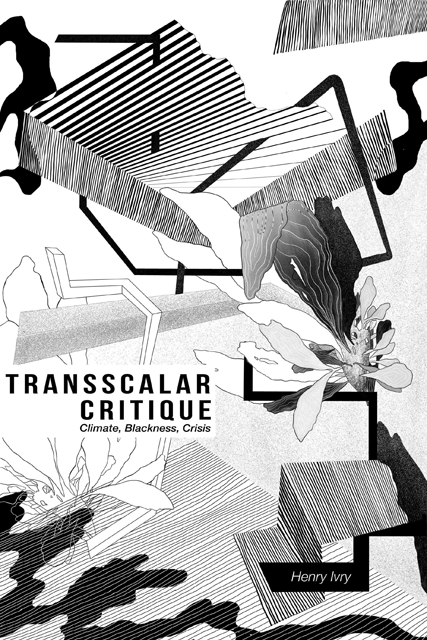Book contents
- Frontmatter
- Contents
- Acknowledgments
- Introduction: Ecologies of Crisis
- 1 Crisis Realism: Writing Economically, Thinking Ecologically
- 2 Global Weirding: Climate Crisis and the Anthropocene Imaginary
- 3 Transscalar Blackness: Race and the Long Anthropocene
- 4 Improbable Metaphor: Jesmyn Ward and the Asymmetries of the Anthropocene
- 5 Unmitigated Blackness: Paul Beatty’s Transscalar Satire
- Works Cited
- Index
4 - Improbable Metaphor: Jesmyn Ward and the Asymmetries of the Anthropocene
Published online by Cambridge University Press: 13 April 2023
- Frontmatter
- Contents
- Acknowledgments
- Introduction: Ecologies of Crisis
- 1 Crisis Realism: Writing Economically, Thinking Ecologically
- 2 Global Weirding: Climate Crisis and the Anthropocene Imaginary
- 3 Transscalar Blackness: Race and the Long Anthropocene
- 4 Improbable Metaphor: Jesmyn Ward and the Asymmetries of the Anthropocene
- 5 Unmitigated Blackness: Paul Beatty’s Transscalar Satire
- Works Cited
- Index
Summary
We are stuck with the problem of living despite ecological ruination. Neither tales of progress nor of ruin tell us how to think about collaborative survival. It is time to pay attention to mushroom picking. Not that this will save us – but it might open our imaginations.
Anna Tsing, The Mushroom at the End of the WorldBut race in the United States is not a tidy matter.
Jesmyn Ward, The Fire This TimeGeorge Bush doesn’t care about Black people.
Kanye WestIn the opening pages of Jesmyn Ward’s 2011 National Book Award-winning novel, Salvage the Bones, the protagonist, Esch Batiste, starts to hear rumors about the arrival of Hurricane Katrina in her small Mississippi Delta town, Bois Sauvage:
It’s summer, and when it’s summer, there’s always a hurricane coming or leaving here. Each pushes its way through the flat Gulf to the twenty-six-mile manmade Mississippi beach, where they knock against the old summer mansions with their slave galleys turned guesthouses before running over the bayou, through the pines, to lose wind, drop rain, and die in the north […] We ain’t had one come straight for us in years, time enough to forget how many jugs of water we need to fill, how many cans of sardines and potted meat we should stock, how many tubs of water we need. But on the radio that Daddy keeps playing in his parked truck, I heard them talking about it earlier today. How the forecasters said the tenth tropical depression had just dissipated in the Gulf but another one seems to be forming around Puerto Rico. (4)
Esch’s analysis of the coming storm works across ontological, environmental, economic, and literary scales. At the start of the passage, we see Ward limn the inextricability of human and nonhuman worlds. Esch thinks about how beach, in this rendering, is a metonym for both a transgression of the human/nonhuman dyad and how this particular beach, with its “summer mansions,” is also a byproduct of class hierarchy. Focusing solely on the beach as manmade or as class symbol would either dematerialize or depoliticize the passage. Ward also picks up where the Intergovernmental Panel on Climate Change left off: drawing our attention to the ways in which climate crisis is distributed asymmetrically across geographies, both physically and socially.
- Type
- Chapter
- Information
- Transscalar CritiqueClimate, Blackness, Crisis, pp. 140 - 172Publisher: Edinburgh University PressPrint publication year: 2023



